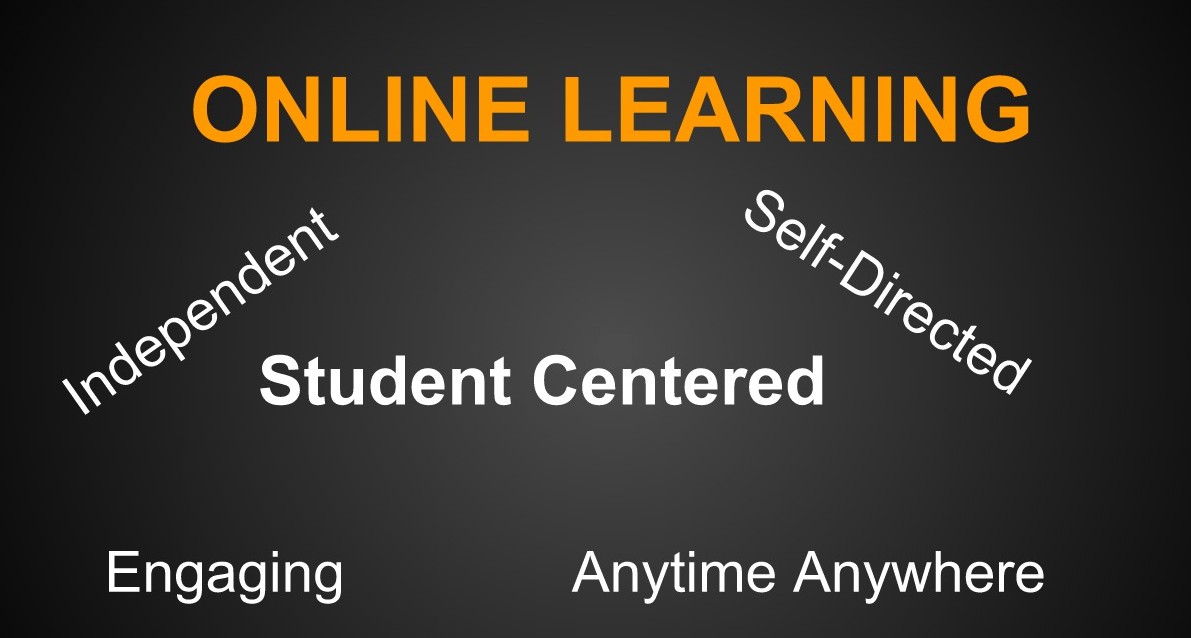Widgetized Section
Go to Admin » Appearance » Widgets » and move Gabfire Widget: Social into that MastheadOverlay zone
Online Learning: The Way of the Future
The views expressed are those of the author and do not necessarily reflect the views of ASPA as an organization.
By Monique Maldonado
August 21, 2015
 With the boom of online degree programs, there has been a negative connotation about the quality of education. There are concerns about whether earning a degree in a nontraditional setting is legitimate. Some question whether degrees from online universities set up potential professionals for success versus those who attend traditional courses. The answer is yes. Online degree programs are legitimate and well respected by employers, if they are accredited by the national accrediting agencies.
With the boom of online degree programs, there has been a negative connotation about the quality of education. There are concerns about whether earning a degree in a nontraditional setting is legitimate. Some question whether degrees from online universities set up potential professionals for success versus those who attend traditional courses. The answer is yes. Online degree programs are legitimate and well respected by employers, if they are accredited by the national accrediting agencies.
Accreditation
Defined by the United States Department of Education (USDE), an accreditation is the,
“Recognition that an institution maintains standards requisite for its graduates to gain admission to other reputable institutions of higher learning or to achieve credentials for professional practice.”
The primary role of the accrediting process is to guarantee that the level of instruction taught for higher levels of education meet specific requirements. There are particular organizations that are responsible for accrediting universities and colleges to ensure students are earning an education through acceptable institutions. These accrediting agencies and the USDE certify that these institutions “establish operating standards for educational or professional institutions and programs, determine the extent to which the standards are met, and publicly announce their findings.” For individuals considering online education and programs, there are a few factors to consider.
Curriculum Development
An important factor when looking for an ideal online program is the curriculum requirements. Some individuals choose the “virtual” route because they believe it is easier and more convenient. Individuals do not have to be in a classroom and they have the freedom to complete work independently, which makes the coursework easy. This is not necessarily the case.
Accredited and reputable universities with online programs have rigorous curricula, making it difficult for those who are not committed to successfully complete the program. Universities such as American Military, Boston, and Walden have very demanding curricula. With semesters that range from seven to 11 weeks, a student should have strict time management skills, dedication/committee to their coursework, and take courses seriously; there are rules that govern students failing and/or retaking online classes.
Choosing Institutions Wisely
Potential students can find respectable colleges that have online programs and still have confidence in knowing that employers will recognize their academic credentials. It is all about making the right choice in the school selection process. Devon Haynie, of U.S. News-Education emphasized when,
“Searching for a university that offers online courses, students must inquire about accreditation. This is important because the typical accreditation process conducts reviews and site visits to assess faculty, student support services, finance and facilities, curricula and other factors.”
It is very important that individuals complete thorough and constructive research on universities and confirm validity of these colleges through the USDE or accrediting agencies such as the Council for Higher Education Accreditation.
The Best College Review website announced the top 25 online universities for 2015 and the results were very competitive. According to the review website, the rankings were based on “affordability, flexibility, academic rigor and support.” Top schools like Northern Arizona University, Arizona State University, Granite State College, University of Central Florida and State University of New York have exceeded requirements for tuition, acceptance rate and a variety of disciplines.
Online learning is an innovative way of obtaining a degree for those who have families, established careers or schedules that prohibit them from going to a traditional school. This way of learning is an alternative route to higher levels of education and more educators are on board with it. As emphasized by Lucie Lapovsky, Forbes Magazine contributor, “more than 70 percent of Chief Academic Officers (CAOs) believe it [online learning] is critical to long-term strategies.” Lapovsky also mentioned that CAOs believe that “distance education courses are equal to or better than those of traditional, on the ground courses.”
Approximately 5 million students are attending universities through online programs. That number is expected to grow over the next 10-15 years. As a veteran of the U.S. Air Force and educator, I earned five degrees, all of them online due to my schedule and constant travel. I am living proof that online learning is an effective and successful way of earning a degree and obtaining a dream career.
Author: Dr. Monique M. Maldonado is a veteran of the U.S. Air Force, educational consultant and adjunct professor. She teaches in the department of criminal justice at Tiffin University. She is also a researcher in public policy and administration as well as national security policy and terrorism fields. For any questions or concerns, Dr. Maldonado can be reached at [email protected].


 (5 votes, average: 4.60 out of 5)
(5 votes, average: 4.60 out of 5)
Follow Us!